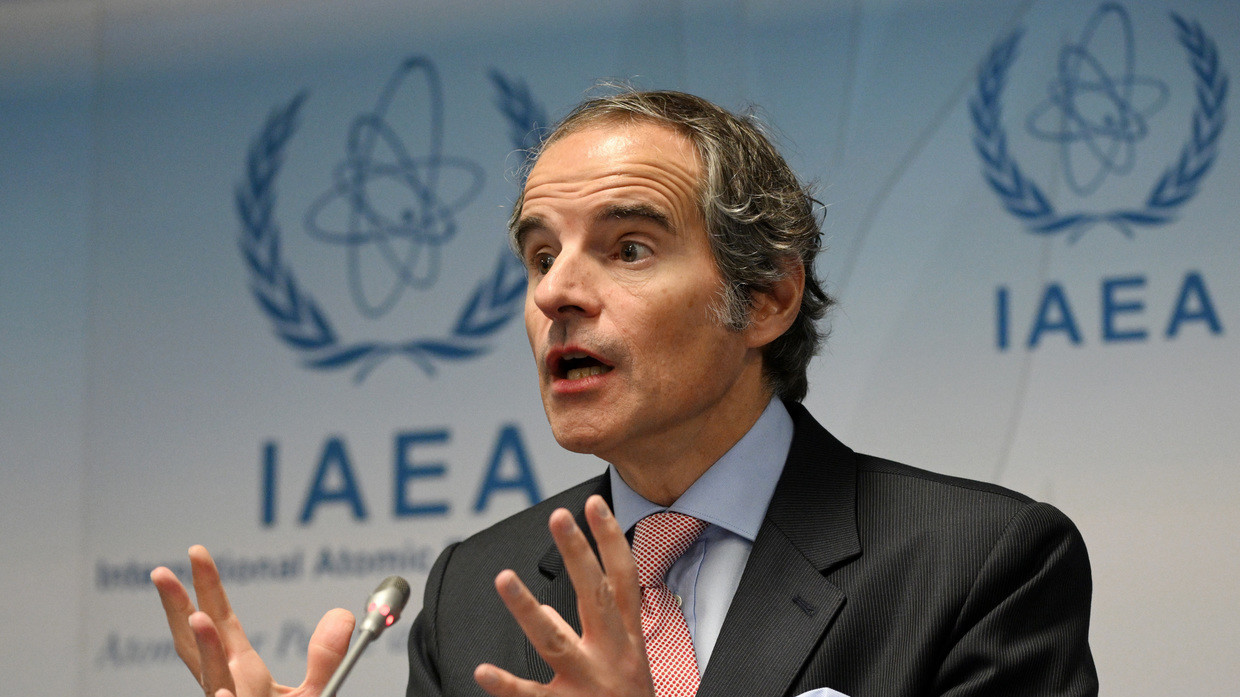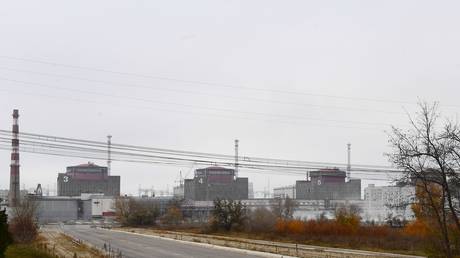More should be done to minimize the risk of a major accident at the Zaporozhye Nuclear Power Plant, the head of the International Atomic Energy Agency (IAEA), Rafael Grossi, warned at a UN Security Council meeting on Thursday.
The Zaporozhye facility, the largest nuclear power plant in Europe, has been under Russian control since the outbreak of hostilities with Ukraine two years ago. The facility has also hosted a monitoring mission sent by the UN nuclear watchdog since Septermber 2022.
In his report on the IAEA’s work to secure and monitor the situation around nuclear facilities in the Ukraine conflict zone, Grossi stated that the “nuclear safety and security situation at the ZNPP [Zaporozhye Nuclear Power Plant] – in particular – continues to be extremely fragile.”
He explained that although six of the plant’s reactors have been shut down since mid-2022, the potential dangers of a major nuclear accident “remain very real.”
Since the start of Russia’s military offensive in Ukraine, Moscow and Kiev have regularly accused each other of attacking the ZNPP. However, the Russian Defense Ministry noted in November that the number of incidents had significantly diminished in recent months.
The watchdog chief noted that while the plant had not been shelled for a considerable time, military activities continue to play out in the region and sometimes in the vicinity of the ZNPP. Members of the IAEA mission have reported rockets flying overhead close to the facility, he added.
In a separate report last week, the IAEA also noted that Russia had reinstalled mines along the perimeter of the plant. Moscow has explained, however, that there is nothing “sensational” about the presence of landmines in the buffer zone near the facility, adding they only pose a threat to “rats, crows, and potential saboteurs.”
Meanwhile, Russia’s top spy, Sergey Naryshkin, claimed in an interview with RIA Novosti on Friday that Western intelligence services, particularly Britain’s MI6, have been preparing Ukrainian reconnaissance groups for provocations at nuclear power plants in Russia, including the ZNPP and a nuclear facility in Kursk.
In October, a Ukrainian UAV rammed into a nuclear waste storage facility during an attack in Kursk Region in western Russia. Several more drones were also downed in the vicinity of the Kursk facility during that attack, local authorities reported at the time.
Moscow has accused Kiev of deliberately targeting nuclear facilities throughout the conflict, claiming that the Ukrainian government has no qualms about resorting to “nuclear terrorism” and sparking a full-scale nuclear disaster that would affect the whole of Europe.


